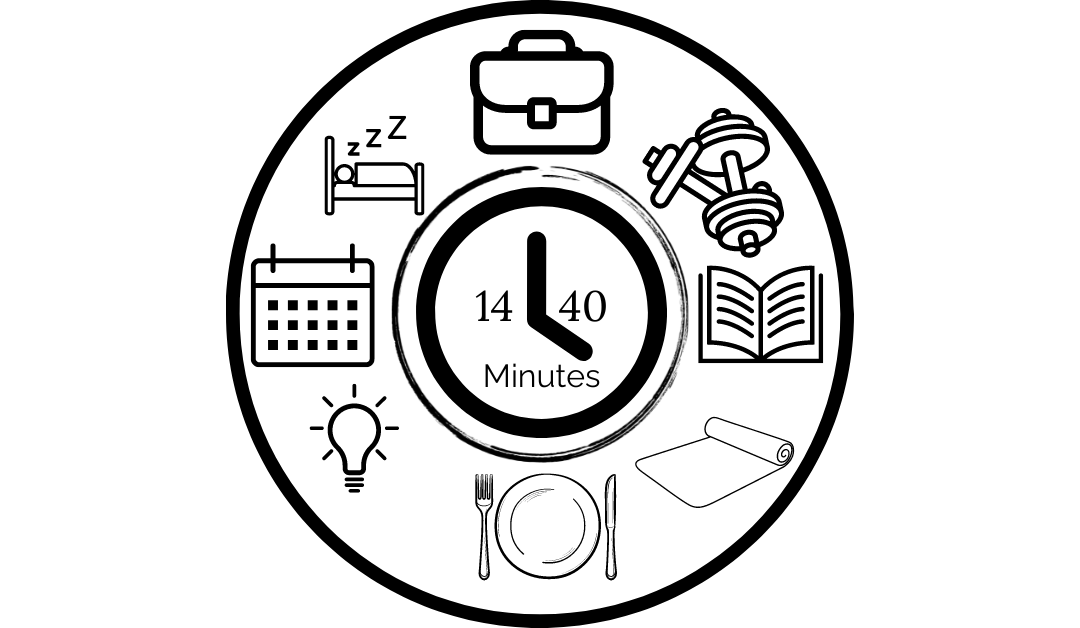We all have the same 1440 minutes in a day, but how we use them is what sets successful people apart. If you’re ready to take charge of your day, setting SMART goals for your 1440 minutes can help you unlock productivity, reduce stress, and achieve your biggest priorities. Whether it’s work, family, or personal growth, having a clear plan for your time is a game-changer.
SMART goals help you make the most of your day by turning vague ambitions into specific, actionable steps. Let’s break down how you can apply this approach to maximize every minute.
What Are SMART Goals for Your 1440 Minutes?
SMART goals aren’t just a buzzword—they’re an efficient strategy for making things happen. SMART stands for:
- Specific
- Measurable
- Achievable
- Relevant
- Time-bound
When you apply SMART goals to your daily 1440 minutes, you create a structured framework that turns your ambitions into results. This approach ensures your goals are clear, trackable, realistic, aligned with your priorities, and tied to deadlines. Let’s dive into each element and see how you can use them to make the most of your day.
1. Be Specific With Your 1440 Minutes
The first step in setting SMART goals for your 1440 minutes is to be specific. Broad goals like “I want to be more productive” or “I want to exercise” sound good, but they lack the clarity you need to take action. A specific goal outlines exactly what you’re going to do, when, and how.
For instance, instead of “I’ll exercise more,” a specific goal would be, “I’ll walk for 30 minutes, five days a week, after work.” This leaves no room for ambiguity—you know exactly what needs to be done.
Actionable Tip: Replace general goals with specific actions. For example, instead of saying, “I want to improve my career,” say, “I will complete one online certification course in my field by the end of the month.”
2. Make SMART Goals for Your 1440 Minutes Measurable
A goal without a way to measure it is just a wish. Making your goals measurable allows you to track your progress and hold yourself accountable. Numbers help turn your ambitions into something tangible.
For example, if your goal is to save money, don’t just say, “I’ll save more.” Instead, say, “I’ll save $200 by the end of the month.” You’ll be able to easily see whether you’re on track to meet your goal, and you’ll feel motivated as you watch the numbers add up.
Actionable Tip: Include measurable elements in your goals, such as time, quantity, or frequency. For instance, instead of saying, “I’ll eat healthier,” say, “I’ll eat three servings of vegetables every day.”
3. Keep Your 1440 Minutes Achievable
It’s tempting to set lofty goals, but if they aren’t achievable, you’ll quickly feel discouraged. You have only 1440 minutes in a day, so it’s important to set goals that are realistic given your time and resources.
For example, if you’re trying to learn a new skill, don’t aim for mastery in a week. Instead, break it down: “I’ll practice coding for 30 minutes every day this month.” This way, you set yourself up for success rather than burnout.
Actionable Tip: Break larger goals into smaller, manageable steps. If you’re writing a book, for instance, aim to write 500 words a day instead of finishing the entire book in one sitting.
4. Ensure SMART Goals Are Relevant to Your 1440 Minutes
When setting SMART goals for your 1440 minutes, it’s crucial that your goals align with your overall priorities. Ask yourself, “Is this goal relevant to where I want to be?” If a goal doesn’t align with your bigger picture, it’s easy to lose motivation or waste time on activities that don’t move the needle.
For example, if you’re focused on advancing your career, setting a goal like “I’ll watch less TV” isn’t particularly relevant. A more relevant goal would be, “I’ll complete an online course that enhances my job skills by the end of this quarter.”
Actionable Tip: Make sure your goals are meaningful and connected to your long-term objectives. If you’re unsure where to start, check out resources like MindTools that offer detailed advice on setting relevant SMART goals.
5. Make SMART Goals for Your 1440 Minutes Time-Bound
Without a deadline, it’s easy for goals to linger unfinished. A time-bound goal creates a sense of urgency and helps you prioritize your tasks. Whether it’s an end-of-day task or a long-term project, giving your goals a time frame ensures they stay front and center.
Instead of saying, “I’ll read more,” say, “I’ll finish reading two books by the end of the month.” The deadline pushes you to carve out time each day to work toward that goal.
Actionable Tip: Assign deadlines to your goals, whether they’re daily, weekly, or monthly. Setting a clear timeline will help keep you focused and on track.
How to Apply SMART Goals for Your 1440 Minutes
Now that you understand each part of the SMART framework, it’s time to apply it to your daily routine. Here’s how you can structure your 1440 minutes with SMART goals to ensure you’re making progress on what matters most.
Morning Routine:
- Specific: Spend 15 minutes planning your day by listing three main priorities.
- Measurable: Set a goal to complete your top two tasks before lunchtime.
- Achievable: Don’t overload your morning schedule—focus on what’s realistic.
- Relevant: Ensure your morning tasks align with your larger goals for the week or month.
- Time-bound: Allocate a specific time frame (e.g., 9-11 AM) to complete your priority tasks.
Workday:
- Specific: Focus on preparing the presentation for next week’s client meeting.
- Measurable: Complete 75% of the slides by the end of the day.
- Achievable: Break the project into smaller, manageable steps (e.g., outline, design, review).
- Relevant: This project is directly related to your quarterly goals and performance review.
- Time-bound: Set aside 2-3 PM to work on the slides without distractions.
Evening Routine:
- Specific: Spend 30 minutes unwinding with a non-work-related activity, like reading or exercising.
- Measurable: Track your progress by aiming to finish a book or complete a set number of workouts by the end of the week.
- Achievable: Pick an activity that’s enjoyable and easy to commit to.
- Relevant: Evening relaxation supports better sleep and reduces stress, helping you stay productive.
- Time-bound: Wrap up your day’s tasks by 7 PM to allow time for self-care before bed.
Make Every Minute Count
By setting SMART goals for your 1440 minutes, you’ll not only increase productivity but also bring more focus and balance to your day. The SMART framework ensures that your goals are specific, measurable, achievable, relevant, and time-bound—making it easier to stay on track and accomplish what’s important.
Don’t let your 1440 minutes slip away! Take a few moments today to set clear goals that move you closer to your long-term vision, one step at a time.

